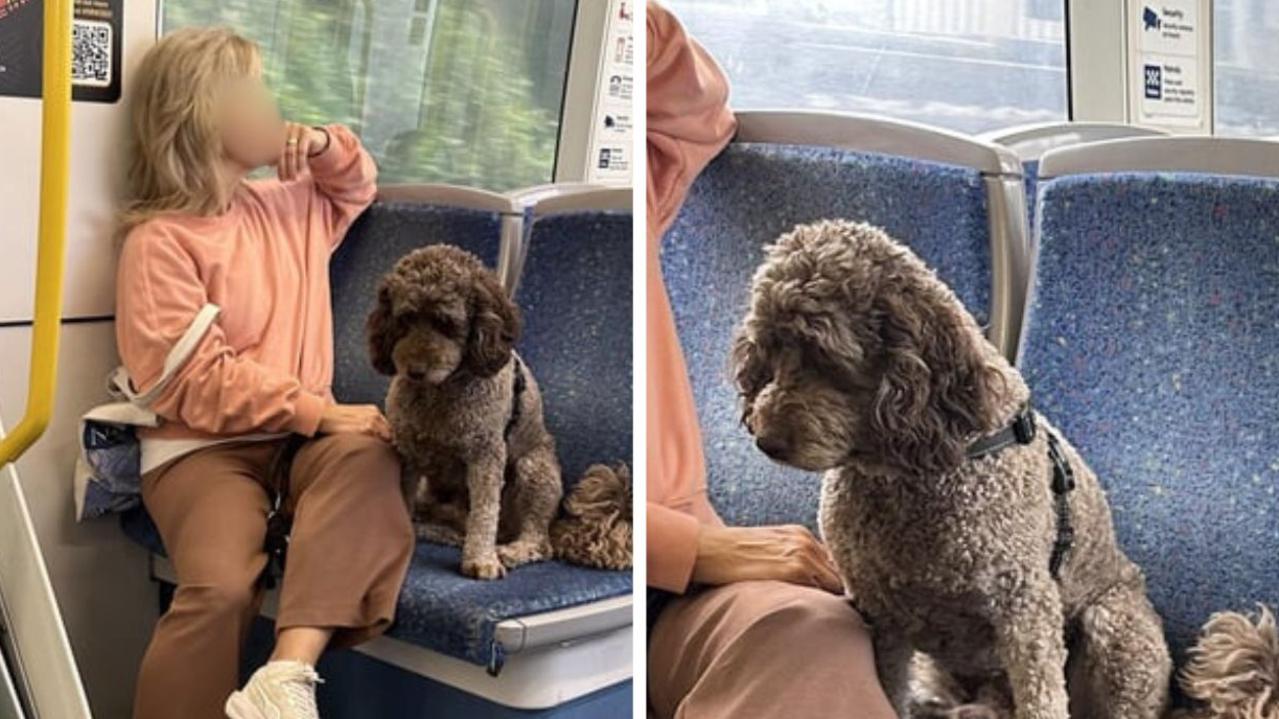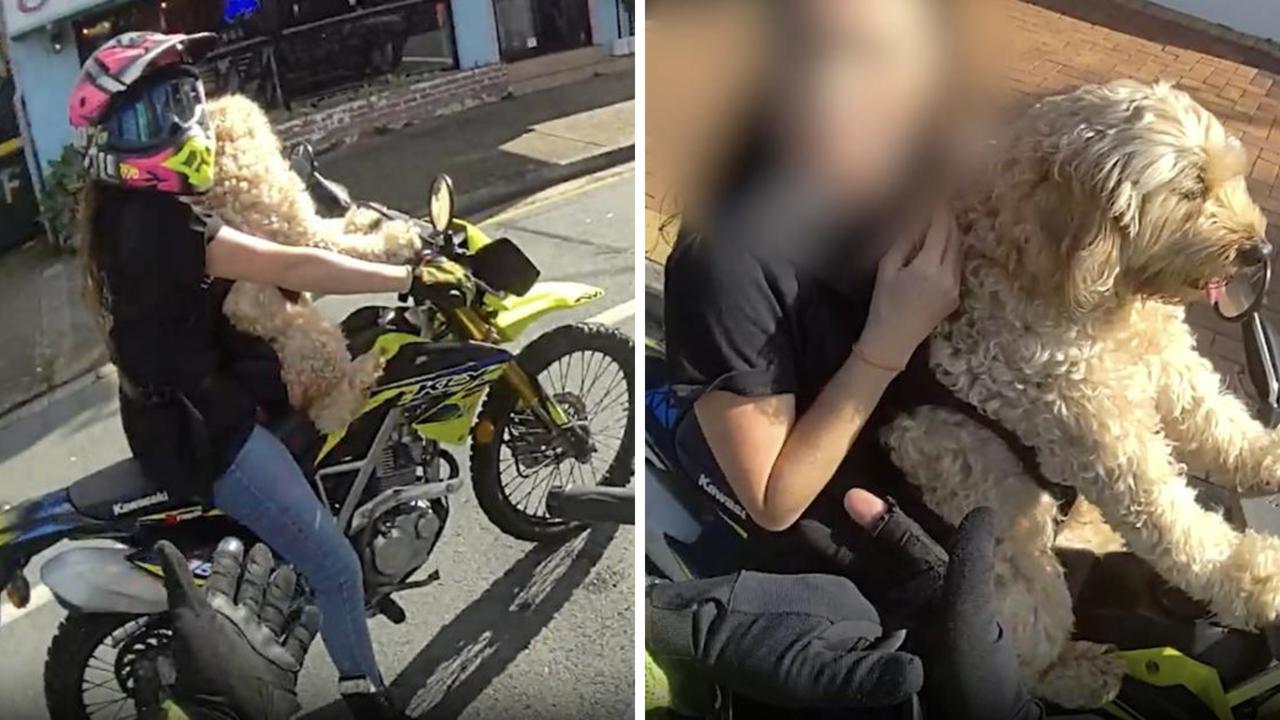‘Oh god’: Sick truth uncovered in designer dog farm
An inspection of a designer dog farm has exposed a shocking reality behind one of the country’s most sought-after dog breeds.
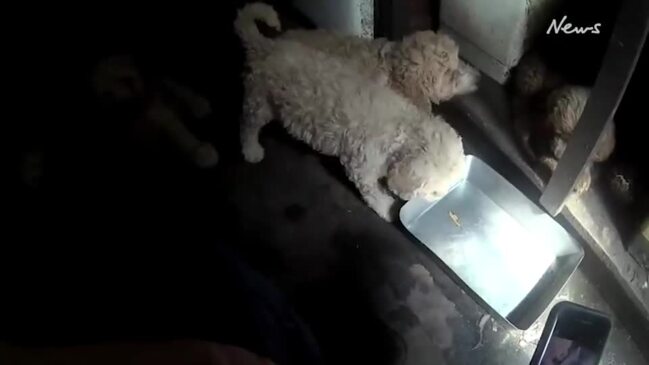
It was a confronting scene for RSPCA inspectors when they arrived at the home of a 60-year-old man in Bridgetown, Western Australia, in January 2022.
After receiving a tip-off, the inspectors went to the house, around 270km south of Perth, where labradoodle puppies were being bred for sale.
The sought-after puppies can cost anywhere between $2,000 and $5,000 depending on the breeder and demand.
But body-worn footage shows one of the RSPCA WA inspectors struggling to cope with the smell as she moves through the dwelling.
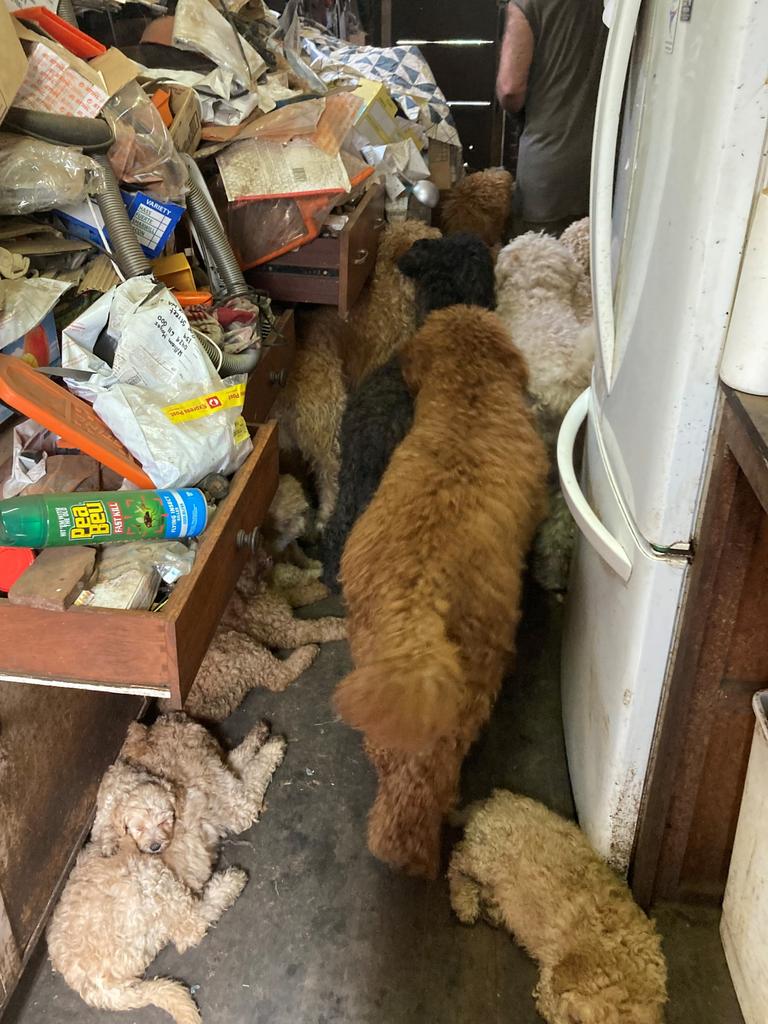
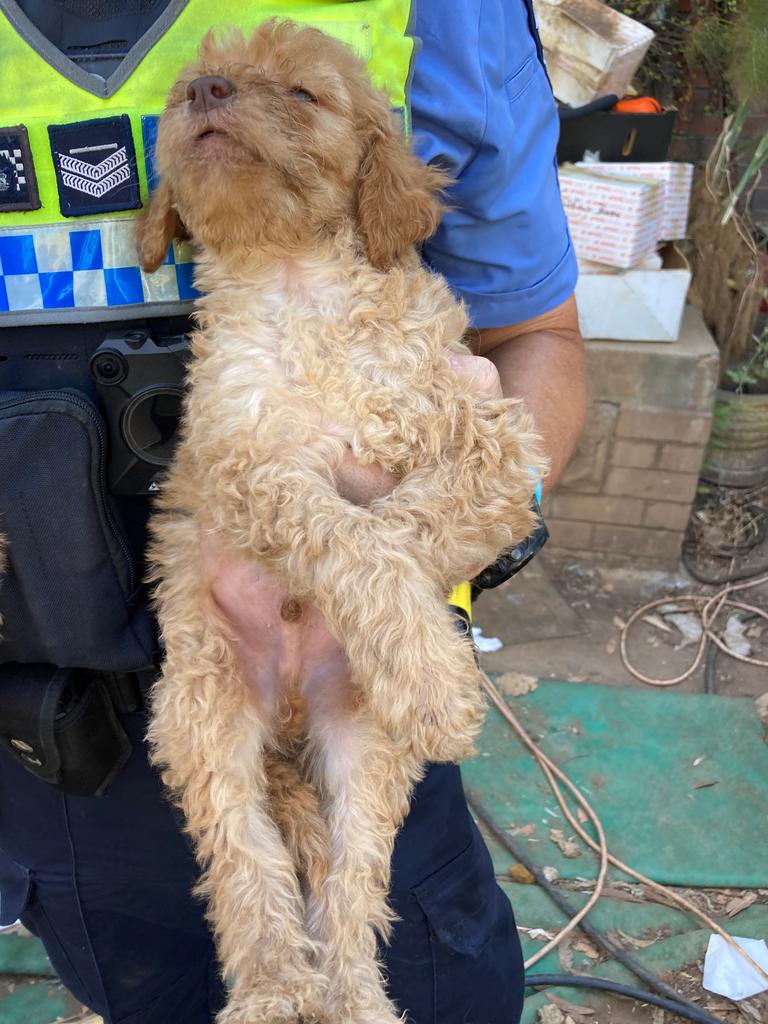
“Oh my god,” she says on one occasion as she is shown appearing to cover her face.
“Oh god, I think we need masks … oh god.”
Not long after, she is seen coughing and dry heaving due to the smell of urine and faeces.
Footage shows piles of rubbish everywhere.
Dozens of dogs are also seen running around, barking and fighting, while others lay lethargic in their kennels.
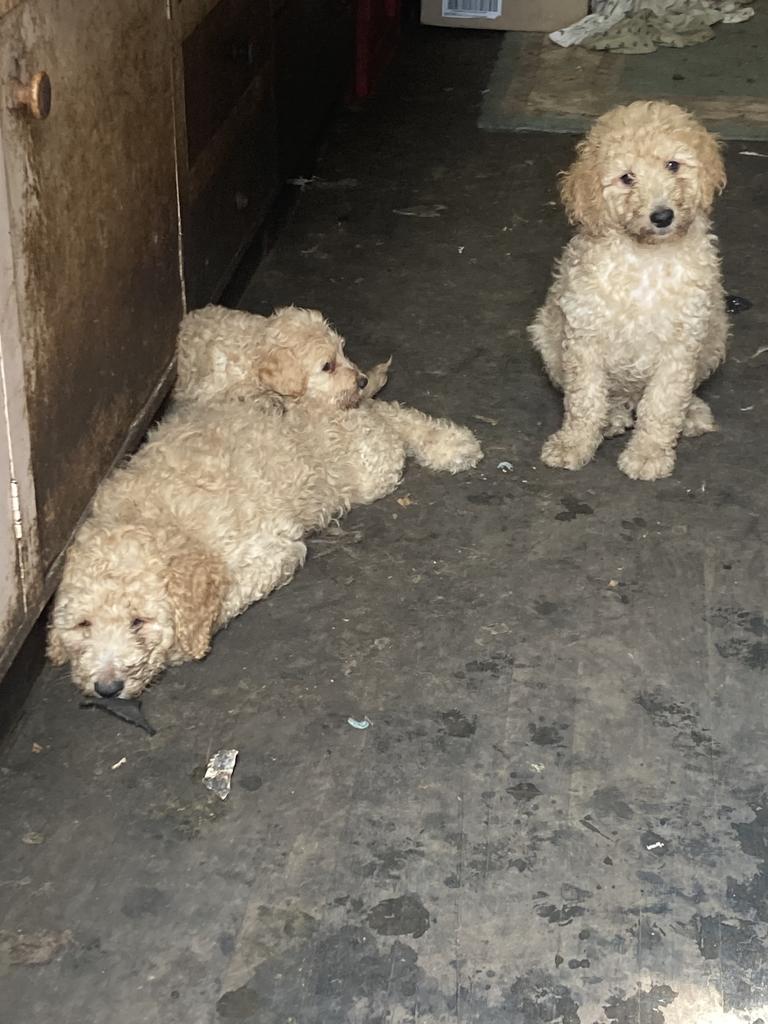
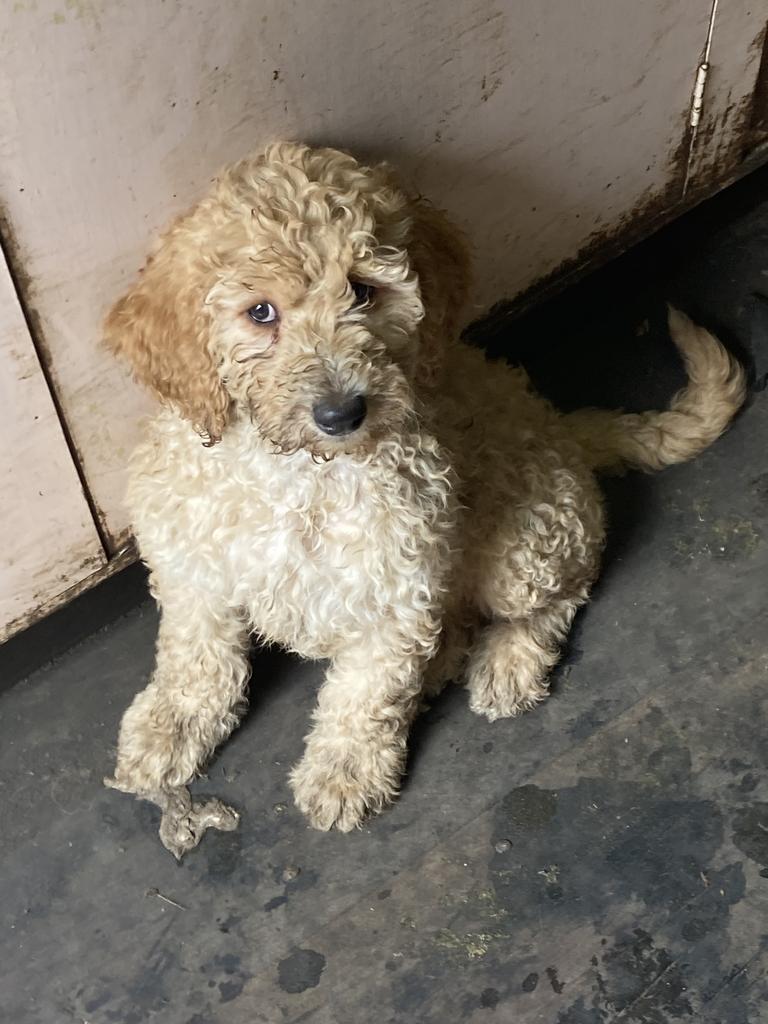
The owner of the puppy breeding operation, William Mangles Carlyle Moyes, was convicted on Wednesday at Bunbury Magistrates Court of 28 charges of animal cruelty and fined $112,000 – $64,000 of which was suspended for two years.
He was also banned from owning any animal for 40 years, except for up to three sterilised dogs.
And any dogs he owns in the future must be registered and microchipped in his name. He must also permit visits from RSPCA WA inspectors and rangers to monitor his compliance with the prohibition order.
Inspectors had been contacted by a concerned member of the public who had gone to the man’s house to buy a puppy.
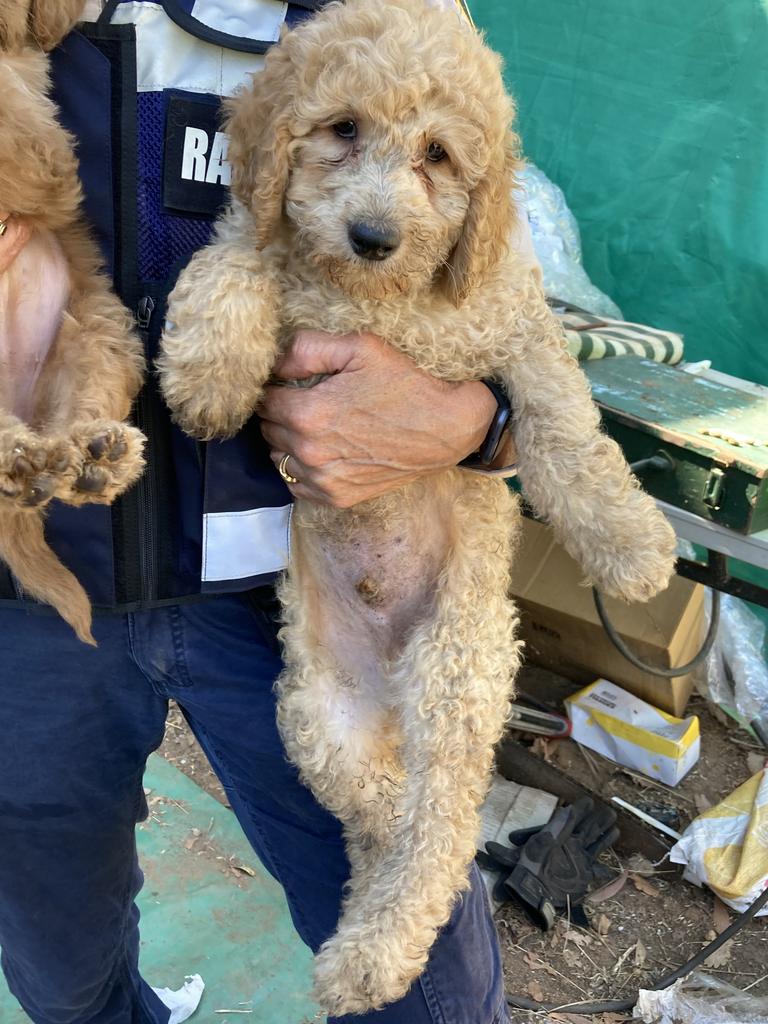
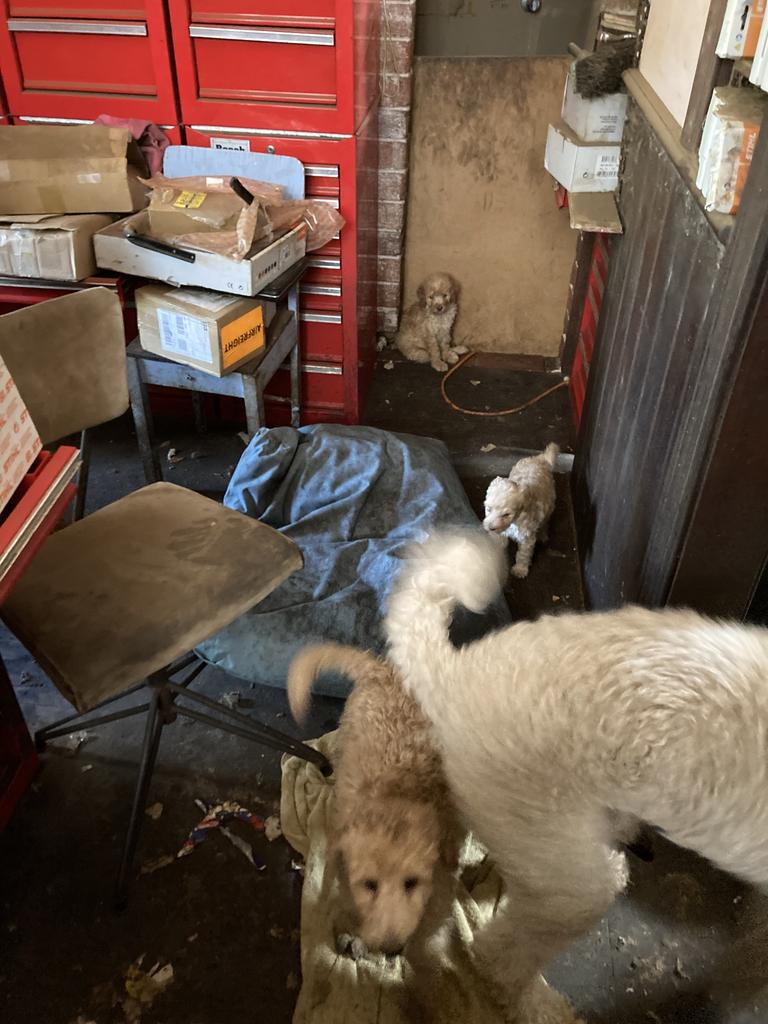
She was shocked by the filthy conditions in which the dogs were being kept and had refused to go through with the purchase.
At the house, the RSPCA found 39 labradoodles, many which were suffering from conditions including ear and other infections, conjunctivitis, embedded grass seeds, heavily matted fur, weight issues and dental disease.
A veterinary behaviourist later determined many were also suffering from psychological harm.
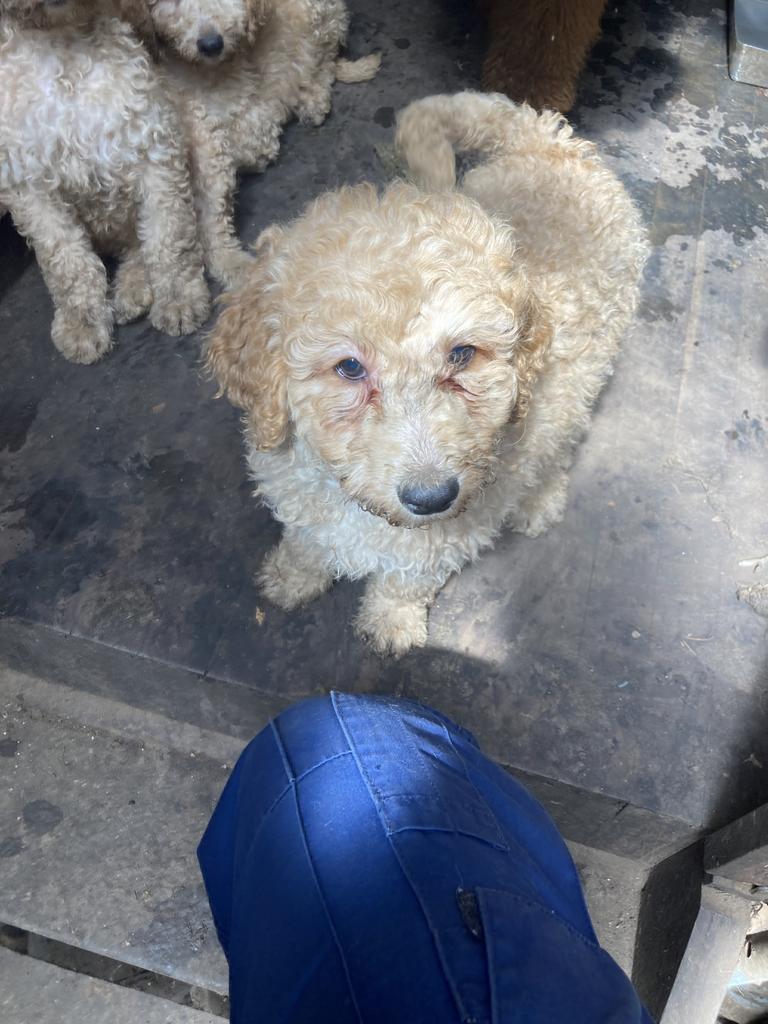

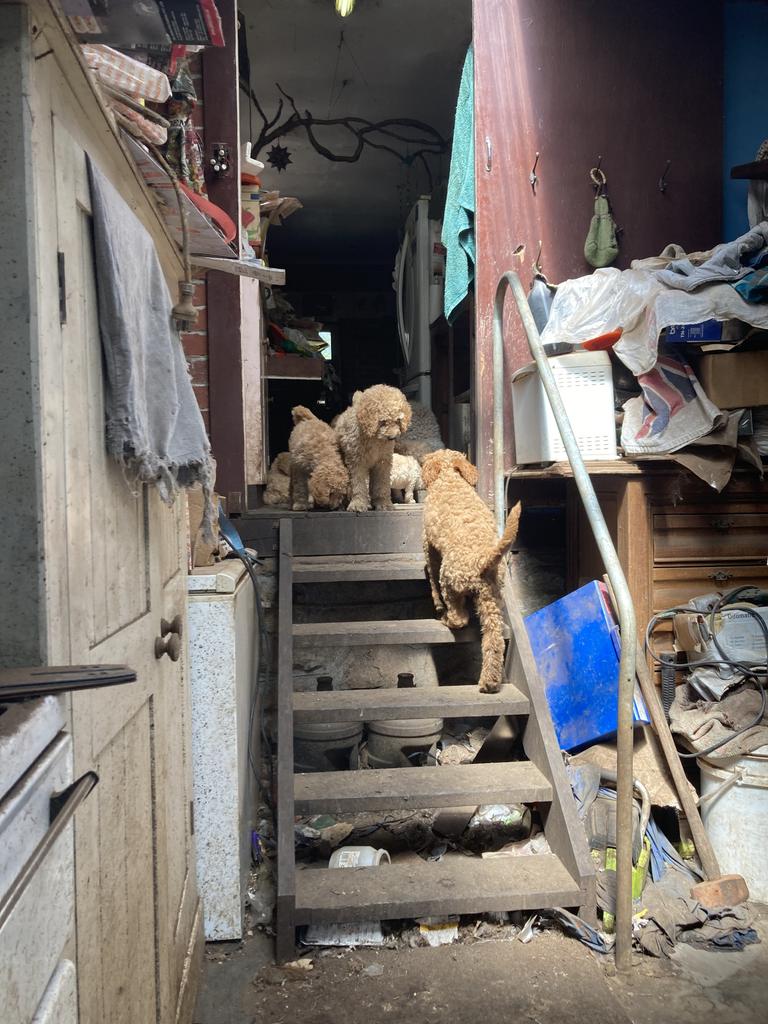
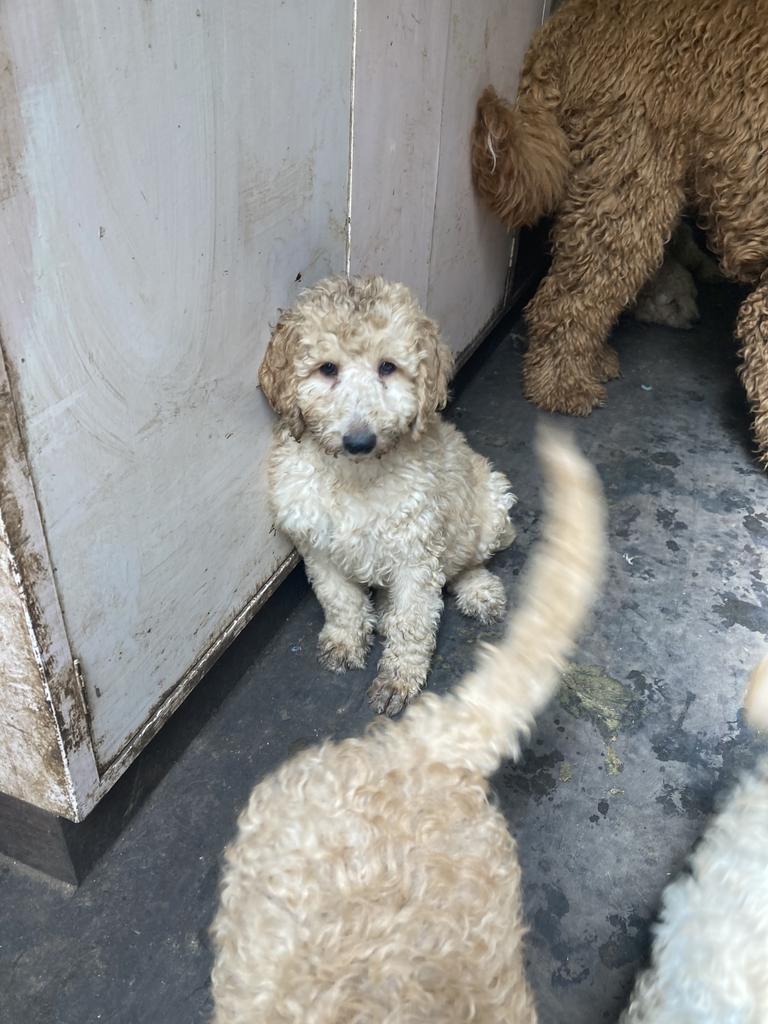
For the animal welfare organisation, the case was a stark reminder of the ugly side of the designer dog industry.
“If you buy from an unregistered breeder, if you buy off the internet or social media, or if you buy without seeing the puppy is being raised in clean, safe conditions and its mum is happy and healthy, then there’s a chance you are supporting this kind of cruelty,” RSPCA WA inspector manager Kylie Green said.
“This is what people need to stop and consider when they are looking to buy a ‘cute’ puppy.”





